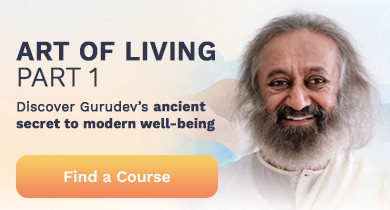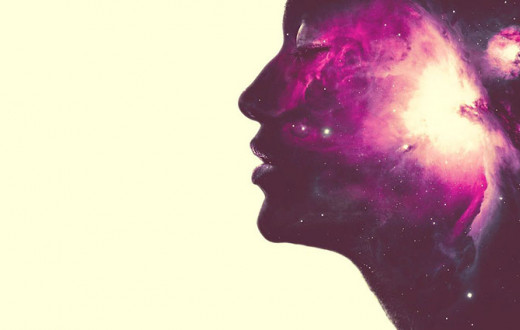By Ketevan Chigogidze | Posted: March 07, 2019
Dreams: do they mean something or are they connected to past impressions in the mind?
“Just as the world experienced in a dream does not exist, this world does not exist as a material entity, though it is seen. Just as it is one’s own consciousness only that shines as the dream, it is the same consciousness that shines as the objective world in the waking state. Hence, there is no difference between the dream and the waking state. One who wakes up from a dream thinks, “It is like this and not like that which I saw in the dream”; after death, too, one thinks “It is like this and not like that which I saw before death.” - Yoga Vasistha
Dreams are enigmatic, and most of us have, at one time or another, wondered what they mean. Even though dreams are often vague and ambiguous, many of us want to analyze them in order get a glimpse into our own psyche, to predict the future, or maybe even to decipher secret messages from subtle realms. Feeling curious about our dreams is very common.
Ironically, it is only through realizing that this whole life is a dream that we can take a giant leap toward understanding the mechanics of our mind and the material world which arises from it.
5 Types of nocturnal dreams
According to Sri Sri Ravi Shankar, there are 5 types of dreams:
Dreams based on unfulfilled desires
Dreams about past experiences
Premonitions of future events
Dreams having nothing to do with you but with where you are sleeping
A mixture of all of the above
The most common type of dream is the fifth one. As a result, we may not be able to categorize our dreams so easily. Therefore, a wise person will not pay too much attention to their dreams and will simply brush them aside. So much for Freudian psychoanalysis! But is there something that dreams can teach us? The famous Vedic sage and Yogic scholar, Patanjali, gives us a clue in his Yoga Sutras:
Swapna nidra jnana aalambanam vaa. The knowledge of sleep and dream can also awaken you to the truth.
Wake up, and see that this whole life is a dream
It is only when we wake up from a dream that we realize that we have been dreaming. When we’re in it, it feels real. Perhaps it takes a similar act of awakening to realize that there is much more to life than what we currently perceive as reality. In fact, the main theme of the Yoga Vasistha, a highly esteemed text among students of yoga and meditation, is that we are undergoing a dream from which we must awake.
According to Sri Sri, instead of analyzing one’s dreams, a wise person wakes up to the reality that this whole life is but a dream! If you observe the passing events of 10 years ago, 6 months ago, or even yesterday, don't they all seem like fleeting dreams? How many people have come and gone from our lives, fading in and out of our daily existence? The tendency is to want to hold on to that which is changing and resist the temporal nature of our experiences and relationships, but reality beckons us to be more flexible.
In fact, every encounter with pleasure or pain conveys to us the message of impermanence. We can either struggle with the discomfort of change, or embrace it as a profound truth.
Acknowledging the dream-like quality of our waking state helps us move through life with more ease and stability. This shift in awareness sets us free from constant brooding over the past and endless anxieties about the future.
Stay balanced amidst the internal conflict
When I first came across the idea that life is like some kind of a dream, I dismissed the analogy as trivial and inconsequential. I couldn’t fathom the depth of this statement. Ok, life can be dream-like, but so what?
This message kept reappearing over time, inviting me to consider its implications. I slowly began contemplating the idea in the context of significant experiences in my own life. At first, the lack of understanding turned into an internal resistance at the seeming futility of it all. Accepting that life is like a dream meant that I couldn’t rely on anything (people, mostly) as stable and lasting. Confusion set in and discomfort arose as my old mental constructs began to break down, paving the way for a new worldview that was a tiny bit closer to the truth.
Digesting this newfound truth took some time. Through the consistency of my personal meditation practice, advanced meditation and silent retreats, and revisiting of classic yogic texts like the legendary Yoga Vasishta, the internal resistance naturally gave way to a subtle feeling of acceptance and a glimmer of a new understanding. This powerful new way of seeing the world didn’t emerge with fireworks and fanfare. The process was more like a quiet internal shift that took place behind-the-scenes. Life is like a dream, but that does not mean that life is inconsequential or devoid of meaning. How can we integrate the notion that life is a dream while engaging fully with the world?
Cultivate Discrimination and Dispassion
The answer lies in cultivating viveka and vairagya, discrimination and dispassion, the two essential ingredients in any recipe for spiritual growth.
Learn to see the difference between what’s true and false - that is viveka, or discrimination. A developed sense of discrimination can penetrate every event and object of our perception to pinpoint the true essence underneath the illusory exterior. With viveka, we begin to gain the laser-sharp awareness needed to recognize the changing scenery of our life as separate from us, the seer or witness who is experiencing it all. When we can disentangle ourselves from the external phenomena of people, situations, and even our very own emotions, then we can become established in our true nature. The more I observe the world with the lighthearted attitude that it is all a dream and will one day vanish, the more I can enjoy and relish the present moment while remaining untouched by its endless changes and surprises. There is much more to this world than what we can understand. This alone can be the gateway to recognizing our existence as something beyond our present-day reality.
Establish an inner stability that is beyond your likes and dislikes - that is vairagya, or dispassion. Do your best, but keep your cool whether your desires are fulfilled or not. Enjoy the world but be careful that you don’t get lost in it. If you do, don’t worry: every road, whether short and scenic or long and arduous, will eventually bring you back to yourself.
Take every opportunity to become acquainted with your inner world through self-reflection and meditation. Instead of questioning what’s happening on the outside, accept and honor the present moment and wake up to the reality that life is all a mysterious dream!
Ketevan Chigogidze is a research chemist and Art of Living instructor from Canada. She is devoted to continuously spreading the knowledge of inner peace and happiness.





























